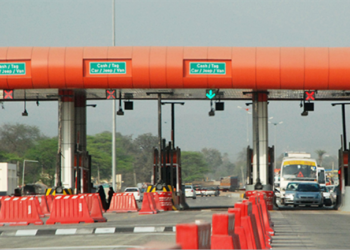Nigeria, a nation striving for economic growth and development, is grappling with a pervasive challenge that threatens the livelihoods of businesses and citizens alike – the issue of illegal taxes. Despite efforts by the government to streamline the tax system and promote fiscal responsibility, the prevalence of unauthorised levies and extortion continues to cast a shadow on the nation’s economic landscape.
Illegal taxes, often imposed by unauthorised individuals or groups, place an undue burden on businesses across various sectors. Small and medium-sized enterprises (SMEs), in particular, find themselves at the mercy of extortionists who demand payments for services that are neither authorised nor legitimate. This strain on businesses stifles growth, limits investment, and hampers job creation, undermining the very foundations of a thriving economy.
Foreign and domestic investors are wary of engaging in a business environment where illegal taxes are rampant. The uncertainty created by unauthorised levies deters potential investors, hindering the flow of much-needed capital into the country. This not only impacts the expansion of existing businesses but also stifles the establishment of new ventures, slowing down the overall economic progress of Nigeria.
Illegal taxes often target vulnerable groups and individuals who lack the means to resist or challenge such impositions. The burden falls disproportionately on those with limited resources, exacerbating socio-economic inequalities. This perpetuates a cycle of poverty and restricts access to essential services for marginalised communities, hindering the government’s efforts to achieve inclusive and sustainable development.
The prevalence of illegal taxes also erodes public trust in the government’s ability to enforce and regulate the tax system. Citizens, already burdened by legitimate tax obligations, become disillusioned when faced with additional unauthorised levies. This erosion of trust poses a significant challenge to the government’s efforts to build a transparent and accountable governance framework.
Illegal taxation often involves criminal elements seeking to exploit businesses and citizens for personal gain. This creates an environment conducive to corruption, extortion, and, in some cases, violence. The nexus between illegal taxes and insecurity adds an additional layer of complexity to the challenges faced by law enforcement agencies, requiring a multifaceted approach to address both economic and security concerns.
Addressing the issue of illegal taxes requires systemic reforms in Nigeria’s tax administration and enforcement mechanisms. The government must strengthen regulatory frameworks, increase awareness among citizens and businesses about legitimate tax obligations, and enhance collaboration between relevant agencies to curb extortionist practices. Additionally, fostering a business-friendly environment and improving transparency will contribute to building investor confidence and mitigating the prevalence of unauthorized levies.
The issue of illegal taxes in Nigeria is not only an economic concern but also a social and security challenge that demands immediate attention. The government, in collaboration with stakeholders, must take decisive actions to root out illegal taxation, restore public trust, and create an environment conducive to sustainable economic growth. Only through concerted efforts and systemic reforms can Nigeria pave the way for a fair, transparent, and thriving economic landscape that benefits all its citizens.
















